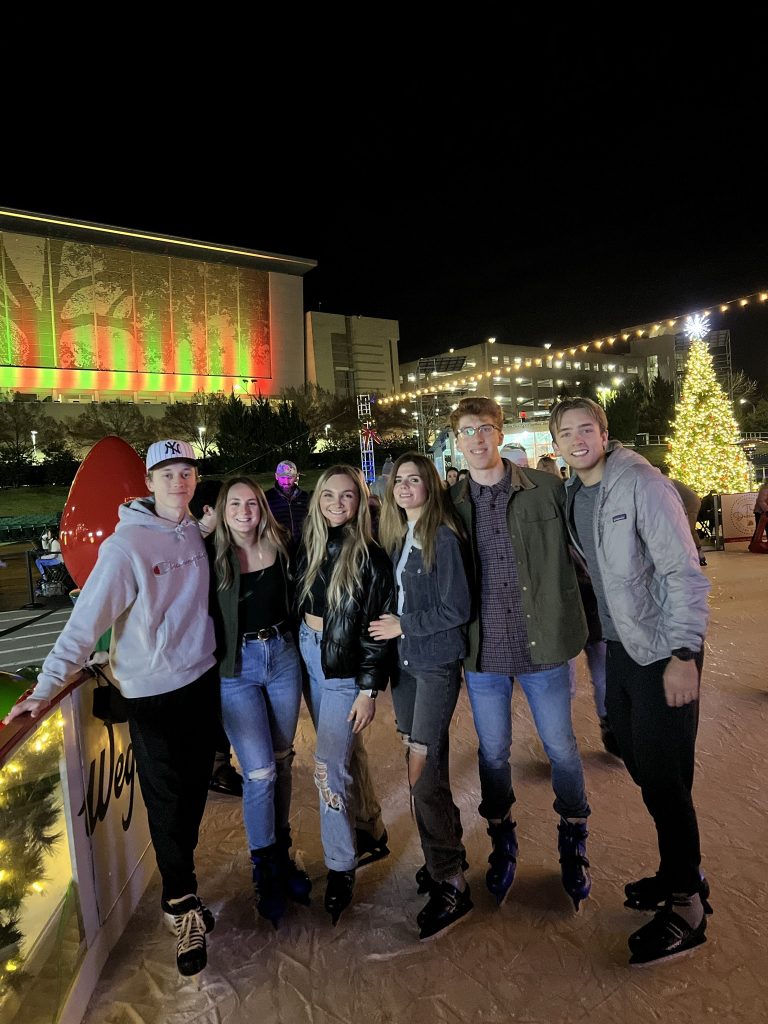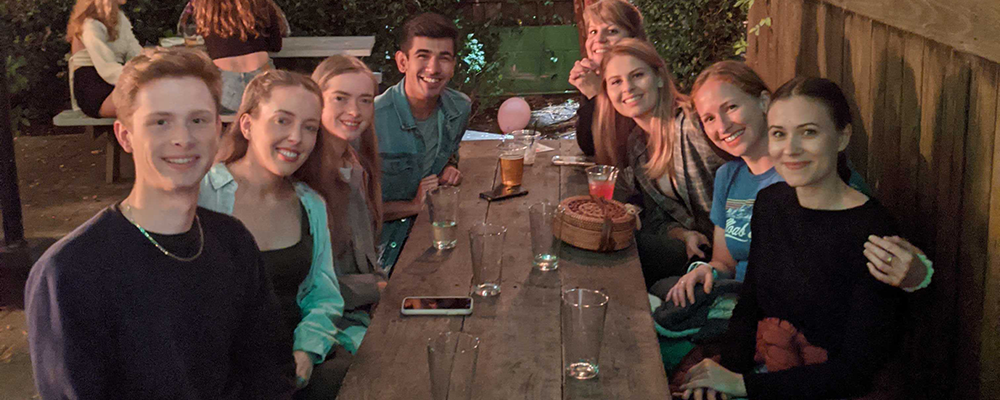I am currently four months into my time at the Institute for Advanced Analytics (IAA). As crazy as it may sound, the people here are 100% changing my life.

During my interview, it was explained to me that a student’s experience at the IAA is much like a rock’s experience in a river.
When a rock is first cast into a river it may be rough around some of its edges. But over time of going with the flow of the river (AKA: trusting the process) and bumping into other rocks (AKA: learning from peers and faculty) the river rock becomes very smooth.
This is much like IAA student’s transformation into a whole new person with a professional polish by the end of the 10 months.
When I first heard this analogy, I admit I thought it might be a bit dramatic and did not fully believe it. Now, I believe in this analogy fully. Before, I believed I would walk out of here knowing the technical information I need to start a career in data science. But now I know that technical skills are only half of what the IAA has to offer me and that the people here are the other half.
Based on my undergrad experience, I believed the role of a professor was to teach students the course material. At the IAA, it is clear our professors and staff want us to learn the material, but they also want to aid our personal and professional growth. They give us opportunities daily for growth by encouraging us to lean into the discomfort of trying new things and allowing us to make mistakes.
One of the biggest lessons I have learned thus far from the faculty is how to take initiative. They have inspired an environment for students to take action. For example, if you take the initiative to ask for help on an assignment, they are more than willing to meet with you for as long as needed. At the same time though, the faculty will never rob you of a learning experience–they will not do the assignment for you, but they are very willing to direct you and your team in the right direction.
A second lesson I have learned from the faculty is the importance of communication. If you can just communicate to the faculty about how they can help you (within reason, of course), they will meet you there and help you get back on track. But you must be able to communicate with them. Ultimately, we are all human, and things happen or come up. It’s nice to have people who can hold you accountable but also be empathetic. There are two sides to this lesson. The first side is that communication is the only way to move forward. The second side of this lesson is how to be the receiver of the communication. I feel the faculty do an amazing job at being role models for what type of coworker we should be in our future jobs. This two-sided lesson is something that I can apply to the rest of my time at the IAA, in my future job, and even in my friendships.
Something I have learned to greatly appreciate about the faculty is how they call you out. This was not something I was comfortable with at first. Not that I am fully comfortable with it now, but I have grown to appreciate it. In fact, when I don’t get much feedback, I feel let down. The constant feedback from all directions has cultivated a lot of self-reflection, which can be uncomfortable to face at times. However, it gets me way closer to improving myself than ignorance would. When the faculty call you out, it’s blunt, but it’s never meant to be harsh. They don’t let us dwell on the past. They have the mindset of addressing it and figuring out how to do better next time. This mindset has carried over to help me figure out how to deal with weaknesses I have noticed through my own self-reflection as well.
These lessons I am learning are simple. And maybe some would think I would have learned them already. I thought I knew how to take initiative, be receptive to feedback, and communicate. But through my experience here at the IAA, I realized I hadn’t fully. But to be honest, I am not sure anyone ever fully finishes learning these types of lessons.
Columnist: Kinsey Tetterton
